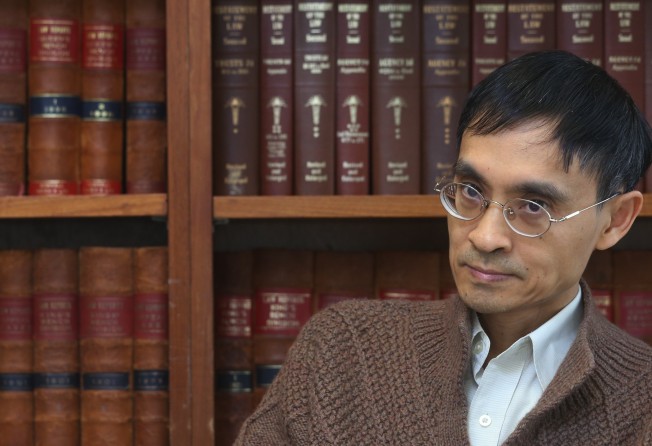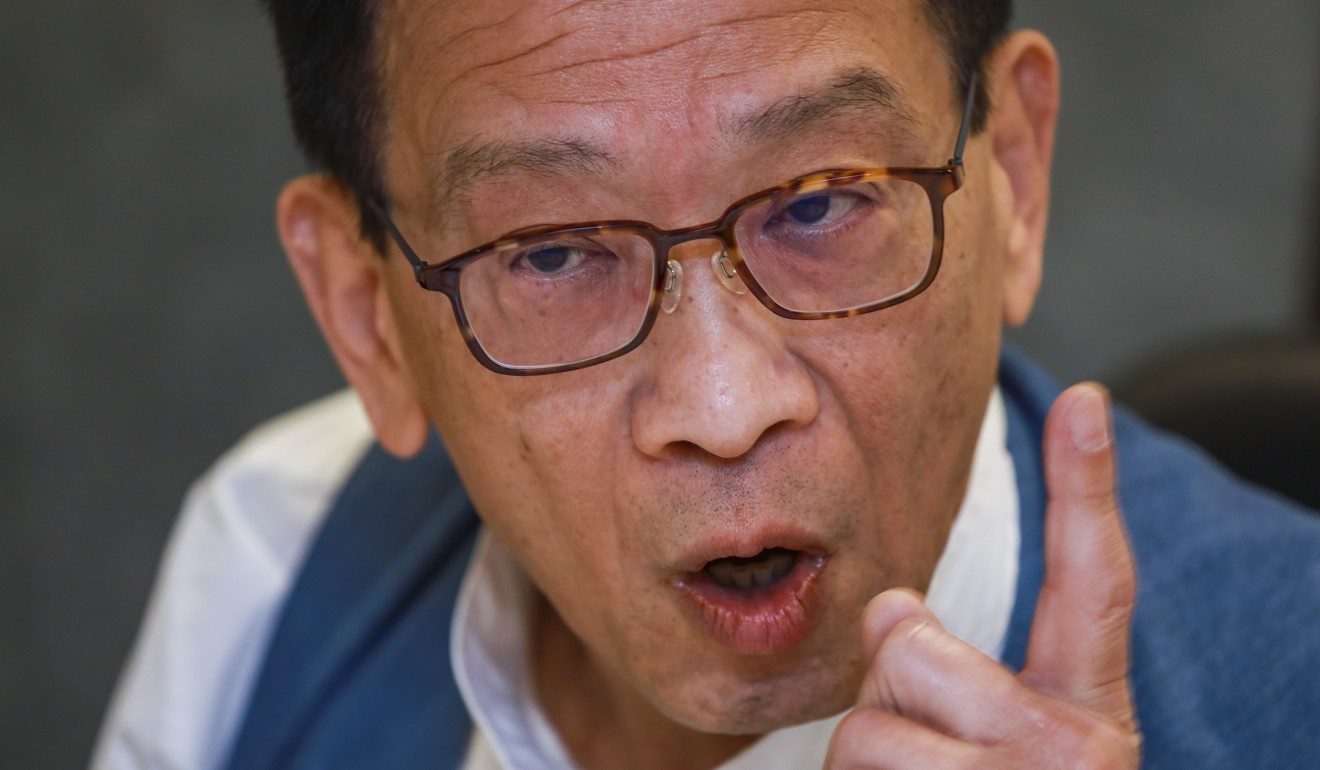Hong Kong extradition law: Beijing-friendly legal heavyweight Albert Chen breaks silence to call for extra safeguards on contentious proposal
- Chen had earlier cast doubts over proposal to amend city’s extradition laws that would allow transfer of fugitives to jurisdictions including mainland China
- He recommends exploring improvements such as empowering local courts to hand over fugitives only to places that could provide fair trials

A Beijing-friendly legal scholar has called for extra safeguards on an embattled extradition bill, such as empowering local courts to hand over fugitives only to jurisdictions that could provide fair trial.
Professor Albert Chen Hung-yee, who sat on the Basic Law Committee that advises Beijing on Hong Kong’s constitutional matters, spoke on Thursday for the first time since both the central and local governments had turned down a key counterproposal he had backed.
“There is a good chance the bill will be passed in Legislative Council,” Chen said. “So we should work to improve it instead of rejecting it entirely.”
Earlier this month, Chen cast doubts over the proposal to amend the extradition laws, which, if passed, could allow the transfer of fugitives to jurisdictions with which Hong Kong lacks a deal, including mainland China.
The University of Hong Kong academic said the proposal would put the courts in a “difficult and invidious position” and called on the government to consider trying residents locally for crimes committed across the border, an idea first raised by lawmaker Michael Tien Puk-sun.
Their suggestions were dismissed by the Hong Kong authorities with Beijing doubling down and backing the controversial bill over the past week.
Chief Executive Carrie Lam Cheng Yuet-ngor cancelled a number of trips, including one to Germany, to focus on the thorny bill, sources said.
Chen on Thursday said he no longer insisted on his counterproposal as he noted the scepticism of Beijing, which viewed it as a challenge to its sovereignty.

He said the government should still explore improvements to the current proposal by introducing more safeguards.
Chen is now backing a moderate proposal by Senior Counsel and Chinese People’s Political Consultative Conference member Alan Hoo, who urged the government to bring in safeguards under a model extradition treaty by United Nations or Commonwealth countries.
Based on the treaty, one such power would allow courts to examine whether the requesting place could provide fair trial.
If adopted in the government’s proposal it would allow local courts to bar requests based on humanitarian grounds or if the alleged acts were long overdue.
Similar safeguards were already in bilateral treaties Hong Kong signed with other countries, including Germany and Canada.
Hoo also suggested security minister John Lee Ka-chiu raise the threshold by allowing extraditions only for offences punishable by five-year jail terms instead of three years as proposed.
The extradition requests should be heard in District Court instead of magistrates, he said.
The government had said any additional safeguards could be included on a case-by-case basis.
Chen warned the current law could only provide minimum protection to the suspects.
Chen refused to call the lack of an extradition arrangement with mainland China a “loophole”, as suggested by officials.
“The government is only proposing a new mechanism to ‘supplement’ the existing treaty-based extradition arrangement,” he said, adding the government should justify its case by revealing the number of fugitives in the city.
Chen said he feared Hong Kong courts might face a difficult task to pass judgment on mainland China’s criminal justice system, even on a case-by-case basis.
“We can’t conclusively say China will not have fair trial,” he said. “Just like in some criminal cases in Hong Kong, the defendants would say they could not receive a fair trial, so this would have to be viewed case by case.”
Meanwhile, two Hong Kong-based pro-Beijing newspapers, Wen Wei Po and Ta Kung Pao, quoted an unnamed “authoritative source” who dismissed critics for playing up the “extradition to mainland” under the bill, stressing that the proposal targets those who have committed crimes in mainland China, and does not affect Hong Kong courts’ jurisdiction.
For Hongkongers accused of threatening national security from the city, the unnamed source said only that such matters would “generally” be left to Hong Kong’s judiciary, instead of definitively stating they would be handled by the city’s courts.